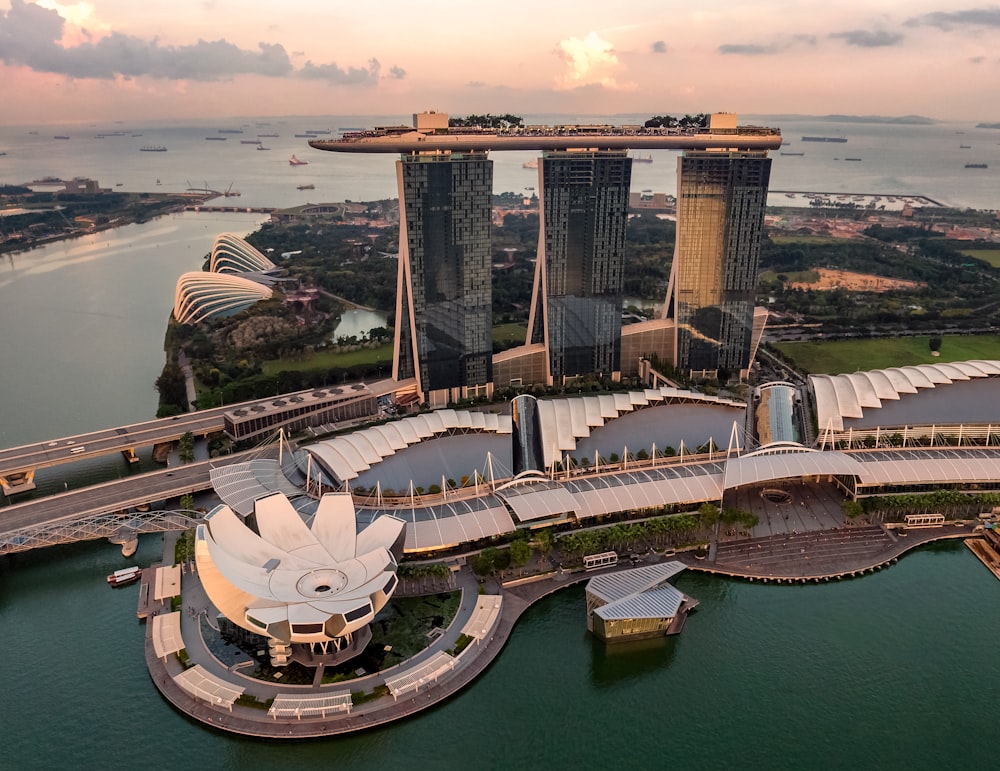Why Do Wealthy Individuals Come To Singapore?
Introduction
With the globalisation of wealth, high net worth individuals (“HNWI”) often look beyond their home countries for investment and residency options. Singapore has established itself as a prime destination for HNWI from across Asia and around the world, ranking third place after the UAE and Australia on the highest inflow of HNWI according to the Henley Private Wealth Migration Report 2023[1]. The city’s appeal can be attributed to an array of factors: high quality of life, political and economic viability, and diversity in population.
Singapore is consistently rated as among the best countries to live in. It offers excellent healthcare facilities, world-class education options and modern infrastructure. The city has long been a popular medical destination for complex treatments, with 5 of its hospitals ranking within the top 150 hospitals in the world[2]. Its world-class public education system is supplemented with established international schools – allowing students clear pathways to higher education opportunities in the United States, United Kingdom, and Australia. The city itself is renowned for its cleanliness and low crime rates.
Additionally, Singapore serves as a gateway to Asia. Changi Airport is one of the world’s busiest airports and has held the title of World’s Best Airport in Skytrax’s ranking for eight consecutive years[3]. More than 100 airlines operate from the airport with direct flights to countries around the globe. The ease of travel establishes Singapore as a base for travel and allows Singapore residents to easily fly to any destination of their choice without hassle. The Singapore Passport is the most powerful in the world, with visa-free entry to 193 countries, which offers additional ease of travel and reflects Singapore’s unparalleled bilateral relationship strength.
As an alternative residency option, one of Singapore’s main appeals is its strong track record as a pro-business and politically stable country. It ranks first in the world in political and operational stability[4], ranked the fourth most competitive economy in the world[5] and is the third largest recipient of Foreign Direct Investment in the world[6]. Singapore is often used by businesses as a springboard for the ASEAN region, hosting the highest number of completed regional headquarters for the past 10 years in Asia Pacific.
The government’s robust policy direction can be seen across all segments of the economy – it has developed a strong domestic regulatory framework to protect intellectual property rights, is heavily invested in digital transformation and has established itself as a leading private banking and wealth management centre globally.
The latter point is a prominent driver for the inflow of wealth into Singapore. The single-family office landscape is very active and is home to more than half of Asia’s family offices. An estimated 1,100 family offices manage around SGD 90 billion of assets in Singapore at the end of 2022[7]. The Monetary Authority of Singapore overseas tax incentive schemes such as the Sections 13O, (Onshore Fund Tax Incentive Scheme) and 13U (Enhanced Tier Tax Incentive Scheme) of the Income Tax Act (ITA), which adds to the competitive tax regime. Once funds are in Singapore, HNWIs have access to full-suite services covering wealth management, legal and tax advisory to trusts and philanthropy. Singapore’s reputation as a transparent and well-run financial hub distinguishes itself from competitors like the UAE, which faces limits on fund transfers while placed on the Financial Action Task Force’s Grey List.
Lastly, Singapore has a vibrant metropolitan landscape and cultural dynamism. With a diverse country with a population of almost 5.9 million from various ethnic groups and religions such as Hinduism, Christianity, Islam, Buddhism, and Taoism, the country has four official languages including English, Mandarin, Malay, and Tamil. The culinary scene reflects the city’s rich and diverse heritage, providing international cuisines across fine dining options to hawker centres.
For the affluent, Singapore’s social scene parallels that of Hong Kong, Tokyo, and other major Asian destinations with its international connections. Several highlights include: the first Asian flagship of the UK wine club, 67 Pall Mall, was opened in Orchard Road in 2022, Sentosa Golf Club’s Serapong course won the title of the World’s Best Golf Course in the annual World Golf Awards in 2023[8], and 12 restaurants in Singapore ranked in La Liste’s world’s best fine dining restaurants list for 2024[9].
In sum, beyond operating as a safe haven for their wealth, Singapore attracts HNWIs who view the city as an ideal residency location for their families. The geographic accessibility, ease of doing business and liveability of the city ensures the demand for migration of wealthy individuals into Singapore.
Our firm has assisted many families in meeting their residency goals in Singapore. Whether in setting up family offices, applying for Singapore Permanent Residency through the Global Investor Programme or advising on the roadmap towards Singapore Citizenship, we are well-equipped to provide interested parties with relevant and sound advice. If you or your clients are interested in obtaining residency in Singapore, we are happy to discuss your plans with you. Please feel free to contact our Business Development team to arrange a meeting with our lawyers.
[1] https://www.henleyglobal.com/publications/henley-private-wealth-migration-report-2023/inflows-outflows
[2] https://www.newsweek.com/rankings/worlds-best-hospitals-2023
[3] https://www.worldairportawards.com/
[4] https://www.globalinnovationindex.org/gii-2022-report#
[5] https://www.imd.org/news/updates/denmark-tops-economic-competitiveness-ranking/
[6] https://unctad.org/publication/world-investment-report-2023
[7] https://www.edb.gov.sg/en/our-industries/family-office.html
